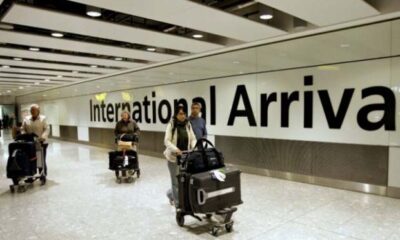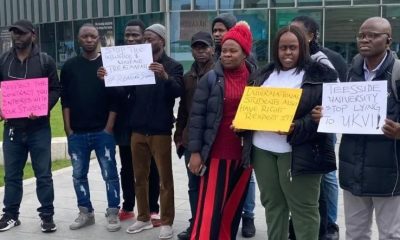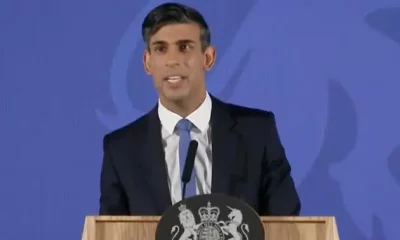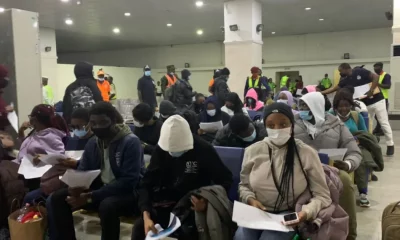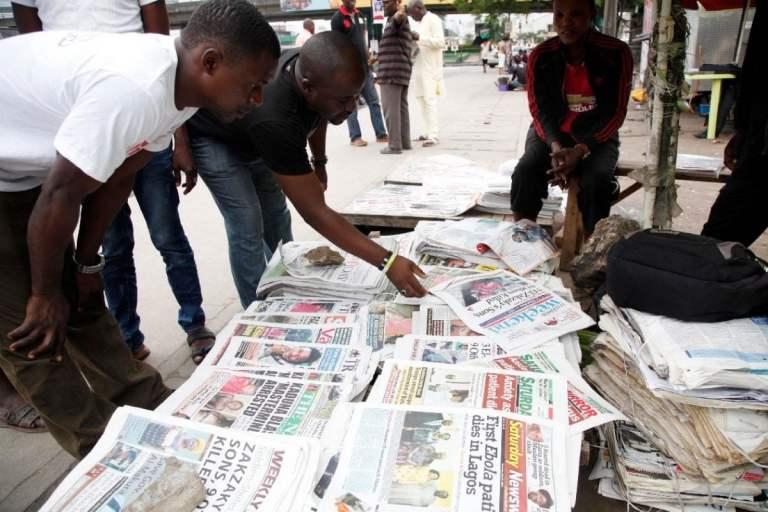Although Nigeria has brought home more thsn 300 its citizens from war-torn Ukraine, over 300 more Nigerians are still trapped in Sumy, a Ukrainian city that shares borders with Russia.
Many of the trapped Nigerians are students of tertiary institutions in Sumy, according to a report by PREMIUM TIMES.
“March 3 was one of the most terrifying days,” Samuel Otunla, a Veterinary Medicine masters student at Sumy National Agrarian University, said. “Once we got the safety warning and arrived in the basement, we heard one of the loudest explosions and in a few minutes, electricity went off – not just in our area but all over the city. Water was also off. Though it was restored 17 hours later, it was an uncomfortable experience.”
Otunla, in a WhatsApp interview on Friday, narrated how a few days into the invasion, they had seen corpses of Russian soldiers lying on the streets as they stepped out to get groceries.
“There is a Military Lyceum 900 metres from the Agrarian University (where I stay) and on the first day of the whole war situation, it was attacked and when we went out for groceries a couple of days later, bodies of dead Russian soldiers were still lying all over the street.
“So far we have had explosions on seven days out of eight. Only one peaceful day. The closest to us was the attack on the Lyceum. Our daily routine has been: leaving the bomb shelter between 6-8 a.m. Spending the rest of the morning cleaning up, cooking and having breakfast. We usually have a general lunch provided by the school administration by 12 noon and the rest of the afternoon is pretty free. During that time, grocery shopping, a lot of ‘searching for a way out’ and we are just in the hostel till the safety warning goes off again. We spend the night in the basement for safety reasons,” Mr Otunla narrated.
According to him, in the past eight days, they had experienced trauma, sickness, stress and weariness. But in the midst of all that, “we also experienced friendship and love. We have shared meals, medications, blankets and mattresses with one another. We have played games together, prayed together and laughed together. But more than anything, we want to be evacuated together. We don’t like it here.”
“The school administration in my university has been so helpful and supportive, every student is willing to help the other person,” he added.
Over 300 Nigerian students are said to be stuck in Sumy, a city in North-Eastern Ukraine, where they have been largely cut off from the rest of the country owing to the shellings by Russia.
The bombings have left part of the city without electricity and water. Both foreigners and Ukraine nationals are caught in the crossfire; making underground bunkers their homes until they can safely move out.
There were high hopes that civilians could safely move out of the affected area when Russia and Ukraine agreed to create a safe corridor to evacuate civilians on Saturday but that hope has crumbled as Russia appeared to have reneged on the ceasefire agreement.
“The situation in Sumy is complicated. In every other city, civilians have been able to evacuate to the West and cross the border to safety in Poland, Romania, Hungary or Slovakia but we’ve been unable to leave Sumy,” Otunla explained.
“The railway has been closed, so no trains, the main roads are inaccessible because some have been destroyed to stop Russian troops from getting in and some others have been totally blocked and taken over by the Russians.”
Although power has been restored in Sumy, Mr Otunla said “there is a possibility to leave Sumy but it is extremely risky – and expensive.”
“Some civilians have been able to travel across by road to other cities; driving through all the possible checkpoints, some others have been shot at and had to turn back and some others have just reached a dead end at broken bridges,” he said.
According to Mr Otunla, his school’s administration informed them a couple of days ago that they (as part of the Ukrainian government) were having discussions for a humanitarian corridor to allow civilians to leave Sumy (and other areas) safely. “They are in discussion with the Red Cross to see the possibilities of this. So far, talks are ongoing, no results.”
He said the only response from the Nigerian government (and other African governments as he heard) is to help students who have crossed the border to neighbouring countries to travel back home. But “we are 1300km from the border so that doesn’t help us, at least not yet,” he said.
“We are constantly getting safety warnings from the state military. Once the siren goes off, everyone has to run down to the bomb shelters for safety. Usually from down in the shelter, we hear the shelling and gunfire.
“I, together with over 60 international students, Ukrainian students and hostel staff have spent the past seven nights in a dusty basement/ bomb shelter. It is not a good experience.”
Although they receive financial support from different organisations for groceries and supplies, he said the students are not sure how long they can hold out.
Also, he mentioned that the Nigerian Embassy in Russia contacted them about a possible evacuation into Russia. But a lot of students rejected the idea considering the sanctions on Russia which could mean “”we may get trapped in the country or just simply the fact that they are the enemy in this whole story, we could end up as hostages. It was not a good idea at all.”
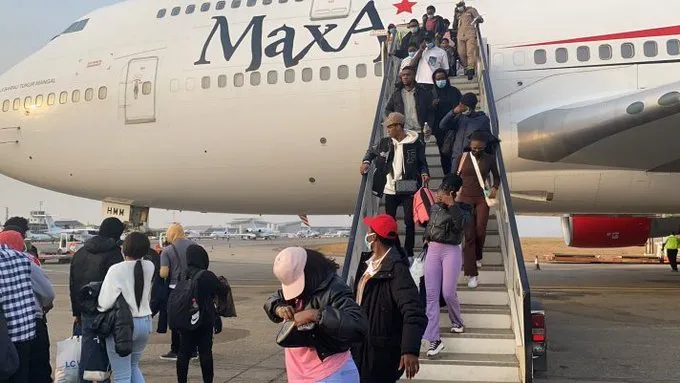

 News3 years ago
News3 years ago
 Entertainment3 years ago
Entertainment3 years ago
 Privacy3 years ago
Privacy3 years ago
 News3 years ago
News3 years ago
 Sports3 years ago
Sports3 years ago
 Entertainment3 years ago
Entertainment3 years ago
 News4 years ago
News4 years ago
 Opinion3 years ago
Opinion3 years ago
